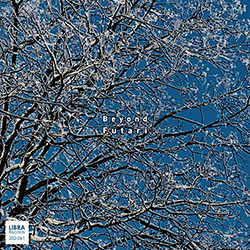
Futari (meaning "two people") is the stunningly beautiful debut album of pianist Satoko Fujii and vibraphonist Taiko Saito, recorded in 2019 after a concert tour in Japan, the confluence of these similar instruments and the performer's technical mastery blending in introspective and active modes, adding rich sonic dimensions through preparations and extraordinary technique.
In Stock
Quantity in Basket: None
Log In to use our Wish List
Shipping Weight: 3.00 units
Sample The Album:
Satoko Fujii-piano
Taiko Saito-vibraphone player
Click an artist name above to see in-stock items for that artist.
UPC: 4562162305615
Label: Libra
Catalog ID: 202-061
Squidco Product Code: 29573
Format: CD
Condition: New
Released: 2020
Country: Japan
Packaging: Cardboard Gatefold
Recorded at Oda Community CenterSubaru Concert Hall in uchiko, Ehime, Japan, on June 26th, 2019, by Toshihiro Toyoshima, Akio Ishiyama, Naofumi Sato and Mitsuru Itani.
"Beyond, the recorded debut of Futari, a duo of pianist-composer Satoko Fujii and vibraphonist Taiko Saito, features lyrical intensity from two fearless explorers of new sounds. The combination of piano and vibes is an uncommon one, but Fujii and Saito navigate the new terrain of their collaboration with imagination and a spirit of adventure. "I think we both were looking to get a special something from the piano-vibraphone duo," Fujii says. "I mean, these instruments are so much alike and it's not easy for them to play together."
Futari (which means "two people" in Japanese) has been 15 years in the making. Fujii and Saito first met when Fujii was performing in Berlin and Saito was still a student at the Universität der Künste Berlin. They stayed in touch and a friendship grew between them. While Fujii and her husband, trumpeter Natuski Tamura, moved to Berlin for a few years in 2011, Saito helped them adjust to their new home, but Fujii's busy touring schedule meant they never got a chance to play. Finally, in 2017, they performed together in Puzzle, a quartet featuring percussive dancer Mizuki Wildenhahn. Saito suggested a duo tour of Japan in June 2019 while she was also home visiting family. Just after the fourth concert of the tour, they recorded Beyond.
The album is thoughtful and full of quiet sonic surprises. "I don't want any limits to how I express myself," Fujii says. "Many people think I play very aggressively. I can be aggressive but I also love playing very quiet. We actually recorded some aggressive pieces, but we ended up using the quiet ones for the album because we loved the feeling."
"In Europe there are so many musicians who explore sound by extended technique," Fujii continues, "I think much more than in America and Japan. I started playing these things before I moved to Berlin, but I have to say during my Berlin days, I became more influenced by these sounds. Taiko and I didn't talk about these things at all before we played, but the vocabulary is a big part of the way we each express ourselves."
Fujii and Saito devote much of their improvising to shaping poignant melodic phrases and abstract sounds into haunting, atmospheric performances. For instance, "Molecular" blends a halo of sustained vibraphone tones, percussive prepared piano rattles, and short melodies into an evocative whole. On "Todokanai Tegami," overtones from bowed vibraphone keys and prepared piano strings tint in the air with subtle tone colors as music-box like lines thread their way through the sonic cloud. "Mobius Loop" begins with soft, ethereal strumming inside the piano peppered with sharp percussive vibraphone sounds and moves on to vibraphone lines gently burbling over piano chords before climaxing with some dynamic linear interplay. Other tracks, such as "The Road" and "Mizube" feature more conventional interaction between the two instrumentalists. On every track, no matter the approach, there's an engaging sense that Fujii and Saito are enjoying the process of discovering what kind of music they can make together.
Critics and fans alike hail pianist and composer Satoko Fujii as one of the most original voices in jazz today. She's "a virtuoso piano improviser, an original composer and a bandleader who gets the best collaborators to deliver," says John Fordham in The Guardian. In concert and on nearly 100 albums as a leader or co-leader, she synthesizes jazz, contemporary classical, avant-rock, and folk musics into an innovative style instantly recognizable as hers alone. A prolific band leader and recording artist, she celebrated her 60th birthday in 2018 by releasing one album a month from bands old and new, from solo to large ensemble. Franz A. Matzner in All About Jazz likened the twelve albums to "an ecosystem of independently thriving organisms linked by the shared soil of Fujii's artistic heritage and shaped by the forces of her creativity."
Over the years, Fujii has led some of the most consistently creative ensembles in modern improvised music, including her trio with bassist Mark Dresser and drummer Jim Black and an electrifying avant-rock quartet featuring drummer Tatsuya Yoshida of The Ruins. Her ongoing duet project with husband Natsuki Tamura released their sixth recording, Kisaragi, in 2017. "The duo's commitment to producing new sounds based on fresh ideas is second only to their musicianship," says Karl Ackermann in All About Jazz. Aspiration, a CD by an ad hoc quartet featuring Wadada Leo Smith, Tamura, and Ikue Mori, was released in 2017 to wide acclaim. "Four musicians who regularly aspire for greater heights with each venture reach the summit together on Aspiration," writes S. Victor Aaron in Something Else. As the leader of no less than five orchestras in the U.S., Germany, and Japan (two of which, Berlin and Tokyo, released new CDs in 2018), Fujii has also established herself as one of the world's leading composers for large jazz ensembles, leading Cadence magazine to call her, "the Ellington of free jazz."
Award-winning mallet player-composer Taiko Saito was born in Sapporo but currently lives in Berlin. She studied with marimba virtuoso Keiko Abe and studied classical marimba and percussion at the Toho School of Music. In 1997 she began to improvise and to write music, and moved to Berlin, where she studied vibraphone and composition with David Friedman at the Universität der Künste Berlin. In 2003 she founded the marimba/vibraphone-piano duo with German jazz piano player Niko Meinhold. Their album Koko was released in 2005 and Live in Bogotá was released in 2014. Reed player Tobias Schirmer joins them to make the trio Kokotob. Together with Rupert Stamm, she also created the jazz mallets duo Patema who's recording was released by Zerozero in 2007. She is a founding member of the Berlin Mallet Group, which also includes her former teacher Friedman. She also performs with Fujii, Natsuki Tamura, Schirmer, and percussive dancer Mizuki Wildenhahn in Puzzle. Recently she played with Mary Halvorson at Berlin Jazz Festival in 2019, and with Silke Eberhard at the Moers Jazz Festival and Berlin Jazz Festival in 2020."-Braithwaite & Katz

The Squid's Ear!
Artist Biographies
• Show Bio for Satoko Fujii "Born on October 9, 1958 in Tokyo, Japan, Fujii began playing piano at four and received classical training until twenty, when she turned to jazz. From 1985-87, she studied at Boston's Berklee College of Music, where her teachers included Herb Pomeroy and Bill Pierce. She returned to Japan for six years before returning to the US to study at the New England Conservatory in Boston, where her teachers included George Russell, Cecil McBee, and Paul Bley, who appeared on her debut CD Something About Water (Libra, 1996). Since then Fujii has been an innovative bandleader and soloist, a tireless seeker of new sounds, and a prolific recording artist in ensembles ranging from duos to big bands. She has showcased her astonishing range and ability approximately 80 CDs as leader or co-leader. With each new recording or new band, she explores new aspects of her art. Regular collaborations include her New York trio with bassist Mark Dresser and drummer Jim Black, augmented by trumpeter/husband Natsuki Tamura to form the Satoki Fujii Four; her duo with Tamura; the Satoko Fujii Quartet featuring Tatsuya Yoshida of the Japanese avant-rock duo, The Ruins; Orchestra New York, which boasts the cream of New York's contemporary avant garde improvisers, including saxophonists Ellery Eskelin and Tony Malaby, trumpeters Herb Roberton and Steven Bernstein, and trombonist Curtis Hasselbring, among others; Orchestra Tokyo, drawing on that city's best improvisers; Orchestra Nagoya; Orchestra Kobe; the co-operative trio Junk Box with Tamura and percussionist John Hollenbeck; ma-do, a quartet including Tamura on trumpet, bassist Norikatsu Koreyasu, and Akira Horikoshi; the Min-Yoh Ensemble with Tamura, trombonist Hasselbring, and accordionist Andrea Parkins; the Satoko Fujii New Trio, featuring bassist Todd Nicholson and drummer Takashi Itani― plus countless engagements and collaborations with some of the world's most important improvisers." ^ Hide Bio for Satoko Fujii • Show Bio for Taiko Saito "Taiko Saitō (Japanese 易 子 子, Saitō Taiko, 易 子 1976 1976 1976 1976 1976 Taiko began playing Marimba at the age of six; Later came the piano and drums. For eight years she received lessons from the Marimba virtuoso Keiko Abe. She studied at the Tōhō College of Music in Tokyo and then graduated as the first marimbaphone soloist with a diploma. In 1997 she began to deal with improvisation and composition. In 1998, she moved to Berlin to study with David Friedman at the University of the Arts. Rupert Stamm took her 2005 to his vibraphone quartet Xylon (with Tom van der Geld and Franz Bauer ). In 2006 she released her first album Koko together with the pianist Niko Meinhold at Pirouet Records. [1] In the trio Kokotob with Meinhold and the clarinetist Tobias Schirmer, which has existed since 2008, she performed at the Nuremberg Festival Vibraphonissimo in 2017. [2] Saitō has played with orchestras such as the Sapporo Symphony Orchestra or the Orchester d'Auvergne. At the 5 th International Shostakovich Festival in Gohrisch in 2014, she participated in the premiere of Sofia Gubaidulina's work "So sei es" as a drummer, [3] which appeared with chamber music works by Viktor Suslin in the same year on the album In Memoriam at BIS. She also belonged to various bands, such as Lunatique Asylum around Oliver Potratz, with whom she performed internationally. She also teaches at the New Music School in Berlin. Saito won first prize at the 3éme Concours International de Vibraphone, Claude Giot, the 3rd prize at the World Marimba Competition, the NTT-DoCoMo Award and the 1st Jazz Jazz Award 2002." ^ Hide Bio for Taiko Saito
7/9/2025
Have a better biography or biography source? Please Contact Us so that we can update this biography.
7/9/2025
Have a better biography or biography source? Please Contact Us so that we can update this biography.
Track Listing:
1. Molecular 5:47
2. Proliferation 5:25
3. Todokani Tegami 8:49
4. Beyond 5:33
5. On The Road 4:53
6. Mizube 5:27
7. Ame No Ato 4:35
8. Mobius Loop 8:01
9. Spectrum 7:42
Improvised Music
Jazz
Free Improvisation
Duo Recordings
Piano & Keyboards
Percussion & Drums
Asian Improvisation & Jazz
Instruments with Preparations
Staff Picks & Recommended Items
Search for other titles on the label:
Libra.

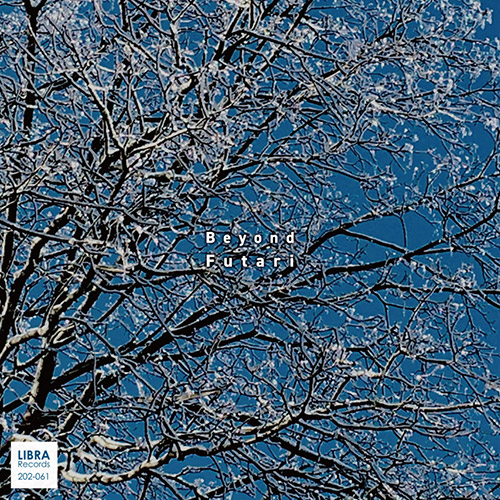






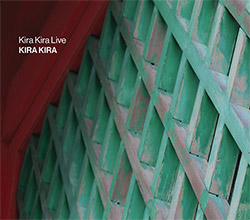




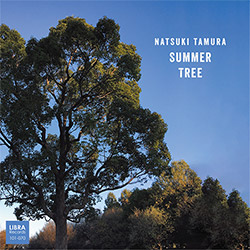


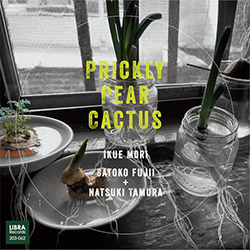
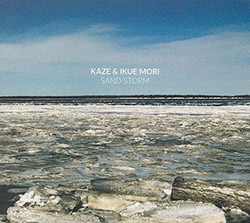



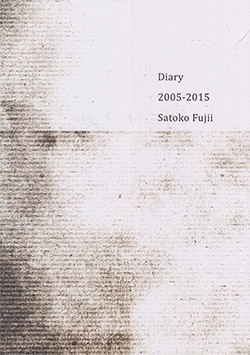
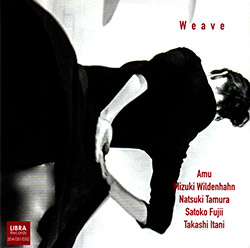


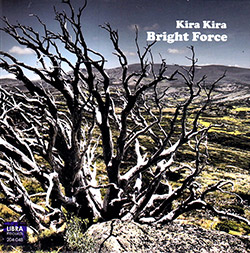





![BlueRing Improvisers: Materia [2 CDs]](https://www.teuthida.com/productImages/misc4/36513.jpg)








![Wheelhouse (Rempis / Adasiewicz / McBride): House And Home [VINYL]](https://www.teuthida.com/productImages/misc4/36462.jpg)
![+DOG+: The Light Of Our Lives [2 CDs]](https://www.teuthida.com/productImages/misc4/36009.jpg)


![Parker, Evan / Jean-Marc Foussat: Insolence [VINYL]](https://www.teuthida.com/productImages/misc4/36398.jpg)










![Deupree, Jerome / Sylvie Courvoisier / Lester St. Louis / Joe Morris: Canyon [2 CDs]](https://www.teuthida.com/productImages/misc4/36404.jpg)



![Eventless Plot | Haarvol: The Subliminal Paths [CASSETTE + DOWNLOAD]](https://www.teuthida.com/productImages/misc4/36232.jpg)










![Eventless Plot | Francesco Covarino: Methexis [CASSETTE + DOWNLOAD]](https://www.teuthida.com/productImages/misc4/36231.jpg)



![Das B (Mazen Kerbaj / Mike Majkowski / Magda Mayas / Tony Buck): Love [VINYL]](https://www.teuthida.com/productImages/misc4/36329.jpg)


![Eternities: Rides Again [CASSETTE]](https://www.teuthida.com/productImages/misc4/36247.jpg)
![Lopez, Francisco: Untitled (2021-2022) [2 CDs]](https://www.teuthida.com/productImages/misc4/36438.jpg)






![Money : Money 2 [2 CDs]](https://www.teuthida.com/productImages/misc4/35894.jpg)




![Klinga, Erik: Elusive Shimmer [VINYL]](https://www.teuthida.com/productImages/misc4/36258.jpg)
![CHANGES TO blind (Phil Zampino): Volume 9 - I Wave on a Fine Vile Mist [CD + DOWNLOAD]](https://www.teuthida.com/productImages/misc4/36061.jpg)

![Wallmart / Rubbish: Asset Protection [split CD]](https://www.teuthida.com/productImages/misc4/35900.jpg)


![+Dog+: The Family Music Book Vol. 5 [2 CDs]](https://www.teuthida.com/productImages/misc4/35897.jpg)
![Kuvveti, Deli : Kuslar Soyledi [CASSETTE w/ DOWNLOAD]](https://www.teuthida.com/productImages/misc4/36107.jpg)

![Brown, Dan / Dan Reynolds: Live At The Grange Hall [unauthorized][CASSETTE]](https://www.teuthida.com/productImages/misc4/36245.jpg)








![Palestine, Charlemagne / Seppe Gebruers: Beyondddddd The Notessssss [VINYL]](https://www.teuthida.com/productImages/misc4/36206.jpg)
![Palestine, Charlemagne / Seppe Gebruers: Beyondddddd The Notessssss [NEON GREEN VINYL]](https://www.teuthida.com/productImages/misc4/36207.jpg)

![Laubrock, Ingrid: Purposing The Air [2 CDs]](https://www.teuthida.com/productImages/misc4/35639.jpg)

![Yoko, Ono / The Great Learning Orchestra: Selected Recordings From Grapefruit [2 CDs]](https://www.teuthida.com/productImages/misc4/35841.jpg)









![Zorn, John / JACK Quartet: The Complete String Quartets [2 CDs]](https://www.teuthida.com/productImages/misc4/35609.jpg)
![Lonsdale, Eden: Dawnings [2 CDs]](https://www.teuthida.com/productImages/misc4/35480.jpg)



![Sorry For Laughing (G. Whitlow / M. Bates / Dave-Id / E. Ka-Spel): Rain Flowers [2 CDS]](https://www.teuthida.com/productImages/misc4/35985.jpg)

![Rolando, Tommaso / Andy Moor : Biscotti [CASSETTE w/ DOWNLOADS]](https://www.teuthida.com/productImages/misc4/36106.jpg)


![Electric Bird Noise / Derek Roddy: 8-10-22 [CD EP]](https://www.teuthida.com/productImages/misc4/35970.jpg)







![Elephant9 : Mythical River [VINYL]](https://www.teuthida.com/productImages/misc4/34624.jpg)



![Elephant9 with Terje Rypdal: Catching Fire [VINYL 2 LPs]](https://www.teuthida.com/productImages/misc4/35355.jpg)
![Deerlady (Obomsawin, Mali / Magdalena Abrego): Greatest Hits [VINYL]](https://www.teuthida.com/productImages/misc4/34876.jpg)







![Surplus 1980: Illusion of Consistency [CD]](https://www.teuthida.com/productImages/misc4/35069.jpg)
![Staiano, Moe: Away Towards the Light [VINYL + DOWNLOAD]](https://www.teuthida.com/productImages/misc4/35037.jpg)
![Coley, Byron: Dating Tips for Touring Bands [VINYL]](https://www.teuthida.com/productImages/misc4/17906.jpg)

![Lost Kisses: My Life is Sad & Funny [DVD]](https://www.teuthida.com/productImages/misc4/lostKissesDVD.jpg)